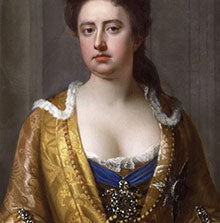HONEY IN SKINCARE
ANCIENT WISDOM NEW TECHNOLOGY
HONEY IN SKINCARE
ANCIENT WISDOM NEW TECHNOLOGY
We are the first and complete line infused with Honey & Bee Propolis.Our products are efficient, 100% pure from the Mother Nature. SOme other text goes here
Over 80 Different Minerals
While it is hard to know how long honey has been around, fossils of honey bees can be dated back to 150 million years!
Honey for skin has been used throughout history as a beauty product. It was a beneficial ingredient since, as a natural preservative, Honey never spoils.
History of Honey in Skincare.
So far, the oldest remains of Honey have been found in Georgia, dating back to some 4,700–5,500 years ago. The first evidence of humans keeping beehives was found in the sun temple erected in 2400BC near Cairo, Egypt.
Honey was used extensively in ancient Egypt- as an offering to the gods, a symbol of royal status, and it was even used in the embalming practices, thanks to its natural preservative properties.
In 5th century BC, the Greeks used Honey for food, but also for healing medicine. The Romans used Honey as a gift to their gods as well as an important food. In Ming Dynasty China, women in the Emperor’s Court used a blend of Honey and Ground Orange Seeds to keep their skin fresh and blemish-free. Honey benefits for skin is a beneficial product because as a natural preservative, Honey never spoils.
Historical figures who used Honey
in their skincare routines
-
Cleopatra (c.69 BC - 30 BC)
Used Honey in her daily beauty rituals to keep her skin smooth and firm. She added Honey to her milk baths. -

Poppaea Sabina (30 – 65 AD)
Emperor Nero's second wife, washed her face 7 times a day with a Milk and Honey lotion. -
Hippocrates (460 BC)
The great Greek scientist used Honey for baldness, prevention and treatment of scars.
-
Nefertiti (1370 BC)
The wife of the Egyptian Pharaoh Akhenaten, regularly used Honey in her beauty regimen. Her name, Nefertiti, was originally pronounced 'Nafteta' which means "the beauty has come". -
Madame du Barry (1743 – 1793)
The last mistress of King Louis XV of France, used Honey as a face mask. Part of her beauty ritual was to lie down and rest after applying the mask. -

Queen Anne (1665 – 1714)
Was believed to have used a secret Honey and Oil recipe to keep her hair thick and shiny. -
Sarah, the Duchess of Marlborough (1660 – 1744)
Had her own secret recipe for a special Honey Water that she applied to her hair in order to keep it beautiful.
It's no wonder why Honey is one of Hey
Honey's foundation ingredients!
Science & Health
Benefits Of Honey
Along with fructose and glucose, Honey also contains many amino acids, vitamins, minerals and enzymes. Honey has more naturally-occurring antioxidants (substances that reduce the negative effects of free radicals) than almost any other botanically/naturally derived source.
Honey has many health benefits, often used orally for things like colds and sore throats, and topically for a variety of skin conditions and wound healing. Honey has been found to have antibacterial and anti-inflammatory properties as well as being a potent humectant, meaning it retains moisture to the skin.
Throughout history, Honey has been used for it’s healing purposes. The ancient Egyptians, Chinese, Greeks and Romans used Honey for wound-healing and stomach disorders. Hippocrates the great Greek scientist specifically recommended Honey for wound healing, coughs and sore throats, eye diseases, topical antisepsis.
